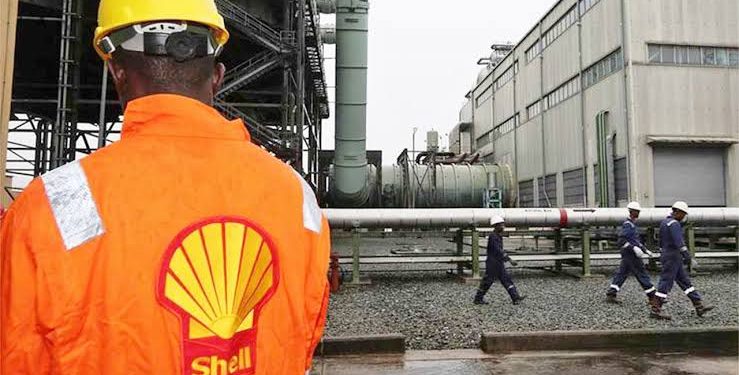By John Ikani
Royal Dutch Shell has announced plans to move its headquarters to the United Kingdom as part of proposals to simplify the company’s structure with the consolidation of its dual British and Dutch structure.
The company also wants to drop “Royal Dutch” from its name, a part of its branding since 1907.
The oil giant will ask shareholders to vote on shifting its tax residence from the Netherlands to the UK which has a substantially lower corporate tax rate, and free it from a dividend tax that many investors saw as onerous.
It also wants to do away with its dual share structure in favour of just one class of shares to boost “the speed and flexibility” of shareholder payouts.
Shell’s Chief Executive, Ben van Beurden, will relocate to the UK.
The company’s Chief Financial Officer, Jessica Uhl, will also move, alongside seven other senior employees.
What Shell is saying about the proposal
Shell in a statement said that the plans will not have an impact on the legal proceedings relating to the climate ruling and others.
The company said, ‘’Shell is proud of its Anglo-Dutch heritage and will continue to be a significant employer with a major presence in the Netherlands. Its projects and technology division, global upstream and integrated gas businesses and renewable energies hub remain located in The Hague.
“Carrying the Royal designation has been a source of immense pride and honour for Shell for more than 130 years. However, the company anticipates it will no longer meet the conditions for using the designation following the proposed change.”
Shell said the simplified share structure means it would be able to “accelerate” shareholder distributions through, for example, share buybacks.
The company announced a $2 billion (£1.5 billion) share buyback in July and will distribute an additional $7 billion from the sale of its Permian Basin oilfield in the US.
“Aside from the fact that the shares they hold will no longer come with a ‘Royal’ designation, this new alignment won’t change much for investors,” said Laura Hoy, an equity analyst at Hargreaves Lansdown.
“The long-term growth story for Shell still rests heavily on the oil price. For now, buoyant oil prices are keeping the group’s cash coffers topped up. However, with the inevitable shift to more sustainable energy picking up steam, we suspect the need to invest in greener operations will keep a lid on what the group can pass on to shareholders.”
Reactions
The UK Business and Energy Secretary, Kwasi Kwarteng, who welcomed Shell’s announcement, said that this was a clear vote of confidence in the British economy and would attract investments and create jobs.
The Dutch Government, however, said it was “unpleasantly surprised” by Shell’s proposal.
Speaking on the development, the Dutch Economic Affairs and Climate Policy Minister, Stef Blok, said the government deeply regrets that Shell wants to move its head office to the United Kingdom.
He said on Monday, “We are in a dialogue with the management of Shell over the consequences of this plan for jobs, crucial investment decisions and sustainability.”
What you should know
The name Shell can be traced back to the seashells imported from the Far East by Marcus Samuel senior in the late nineteenth century. When Marcus junior and Samuel, his sons, were looking for a name for the kerosene they were exporting to Asia, they chose Shell.
As kerosene sales grew to dominate the company’s revenue, the name was adopted for the new import-export company established in 1897 – the Shell Transport and Trading company.
When the company merged with Royal Dutch to form the Royal Dutch Shell Group in 1907, the Shell name took a back seat for a short time, but the newly formed business quickly became known as Shell for short.
Royal Dutch Shell is a result of the merger of Royal Dutch Petroleum Company and the UK’s Shell Transport and Trading Company in 1907.
Royal Dutch Shell’s structure is pretty complicated. The company is currently registered in the UK, but its headquarters are in the Netherlands.
There are two different types of shares – effectively a Dutch share and a UK share – and this affects the way payments to shareholders are taxed.
Now, under pressure from an activist investor, and facing huge change as the world moves away from fossil fuels, the company has decided it is time to simplify further. The move is designed to make payments to shareholders easier, while Shell says it will also help it to transform its business.
Although the Netherlands is famously business-friendly, Prime Minister Mark Rutte has had to act on growing sentiments that companies don’t give back enough. He had to backtrack on a 2017 plan to scrap a dividend tax, throwing Shell’s head-office structure into doubt. Consumer goods maker Unilever Plc also ended its dual structure in 2020 and registered as a fully British company.
There had been reports that the Dutch government officials are struggling to find a parliamentary majority to scrap a 15% withholding tax charged on dividends, which Shell has previously described as a problem.




































